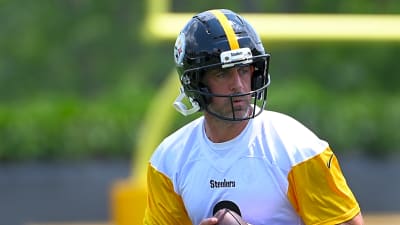It is indeed difficult to come anywhere close to doing justice to what Billy McNeill did for the club. 23 major medals doesn’t even come close to commemorating his achievements, and it it surely fitting that his statue is situated at the bottom of the Celtic Way in London Road. In so many ways he symbolises Celtic.
He came into the team in 1958, but these were difficult days for the club, and things probably got more difficult for Billy when his mentor Jock Stein left in March 1960.
The years between 1960 and 1965 were the years in which Billy often seemed to carry the club, suffering major disappointments and even occasion dabbling with the idea of moving elsewhere.
But it all changed when Jock came back. Billy was “Jock on the park” and how symbolic it was that the new Golden Age all began with Billy’s header in the 1965 Scottish Cup final.
For the next ten years under Billy’s captaincy, the team competed in 30 Scottish competitions and lost only 9 of them. And there was that day in Lisbon as well. That really says it all.
Commanding in the air, brilliant on the ground, inspirational in the dressing room, diplomatic off the field and a born winner everywhere. He never played for anyone else, and how fitting it was that he retired gracefully in 1975 at the end of a Scottish Cup final.
He retired undefeated.
David Potter
The Celtic Star of the Decade – 1960-1969 – Billy McNeill…
There can only be one candidate for Player of the Decade in the 1960s. This was, of course, Billy McNeill who played 486 games for the club and won an astonishing total of 23 major medals, one of them being, of course, the European Cup of 1967.
But his medals are less than half of it. Born 1940 died 2019, his playing ability was legendary. An outstanding centre half, particularly in the air, he was also an outstanding leader, and like most great leaders, he was there on the occasions which mattered, notably the goal that he scored at the start of it all against Dunfermline in 1965, or the early goal that laid the marker for the 1969 Scottish Cup final against Rangers.
But he was also a great ambassador for the club. Good looking, articulate, gentlemanly, photogenic he was everything that the club would have wanted. He was a perfect conduit between Jock Stein and the players, and in some ways he was an extension of Jock Stein on the field.
His first game had been back in 1958, and he soon was able to command a place at centre half. His first few years were not happy ones for the club but they were for McNeill who soon earned Scotland caps and became Celtic’s captain in 1963. When Stein came back to the club in 1965, things really took off, and McNeill became a worldwide icon, almost the personification of Celtic FC – something that continues to this day with his statue at Celtic Park.
He was twice badly injured in seasons 1964/65 and 1965/66, but he recovered and from them on was seldom out of the Celtic team. His announcement of his retiral was aptly timed after the 1975 Scottish Cup final.
As with everything else, his timing was impeccable. Words often fail a historian when he tries to quantify the contribution of Billy McNeill to Celtic FC. A brief article on a website cannot do it. It would require a set of encyclopedias to do him justice. And even then, there would be a lot missed out…
David Potter
The legendary Billy McNeill’s magnificent Celtic Story
Just over 50 years ago – on 3 May 1975 – the playing career of one of Celtic’s most remarkable figures came to an end…
Billy McNeill walked off the Hampden pitch having just led the Bhoys to their latest Scottish Cup triumph. It was the final time he would do this whilst wearing the green-and-white Hoops. This was the latest piece of Celtic folklore into which McNeill wrote his name, and a story that was not yet finished.
In all of Celtic’s history, Billy McNeill stands out as the club’s greatest ever captain, arguably its most significant ever player. This is his story.
The Billy McNeill Story
McNeill was born in Bellshill on 2 March 1940 in the midst of the Second World War. Just like Celtic, he was the product of immigrants, with a Lithuanian mother and of Irish descent on his father’s side. Most of his childhood was spent in Lanarkshire, although he lived in England for a spell.
Billy’s family eventually moved to Motherwell and it was here that he began to make a footballing name for himself. He played for Our Lady’s High School and his performances earned him a move to Junior side Blantyre Victoria.
As he grew older, his footballing abilities were becoming widely known. He was selected to play for Scotland schoolboys, and this brought him to Celtic’s attention. Jock Stein – at this point the Bhoys’ reserve coach – ensured that McNeill came to Celtic Park, signing in 1957.
Although this year saw Celtic’s famous League Cup Final win 7-1 win over Rangers, it was not generally a happy era for the club. In fact, this would be the last trophy that Celtic would win for eight years.
When Billy made his debut in August 1958 – coming in a 2-0 home win over Clyde – he would soon establish himself as an important part of the club. But the general problems evident at Celtic made him wonder if he should move elsewhere, despite being made captain in 1963.
Continue reading on the next page…
More must-reads:
- A new stadium will take the Fire to the next level in MLS
- USMNT vs. Switzerland: Key takeaways from an alarming loss
- The '1,000-yard receivers in the 2024-25 NFL season' quiz
Breaking News
Trending News
Customize Your Newsletter
 +
+
Get the latest news and rumors, customized to your favorite sports and teams. Emailed daily. Always free!







